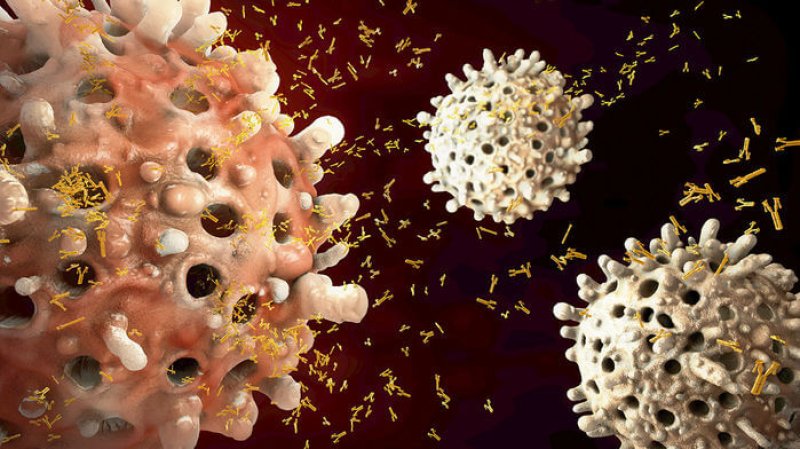A promising new class of cancer treatments recruits the cells in our blood to fight tumors, using powerful gene-editing tools to transform a type of white blood cell — called a T cell — from an immune cell that normally targets bacterial or fungal infections into a living cancer drug.
The genetic alterations could boost immune systems to successfully fight cancers on their own. Researchers remove T cells from patients and slip new genes into the cells. After clinicians return the modified T cells to patients, the cells, like microscopic bloodhounds, lead the immune system on the hunt for tumors.
…
Disabled viruses, which inject genes into cells like a shot from a syringe, are the current standard.
…
[Immunologist Alexander] Marson and his colleagues have developed a new, faster method to reprogram T cells, as they described [July 11] in the journal Nature. Rather than relying on viruses to deliver the genetic package, researchers jolted T cells with electricity. The shock relaxed the membranes that surround the cells, making them receptive to new genetic material.…
“It’s a turning point,” said Vincenzo Cerundolo, director of the Human Immunology Unit at Oxford University.
…
He predicts cheaper therapies and much faster development times — as swiftly as a week, rather than the months required to manufacture a virus.
Read full, original post: With new genes and an electric shock, scientists turn immune cells against cancer































